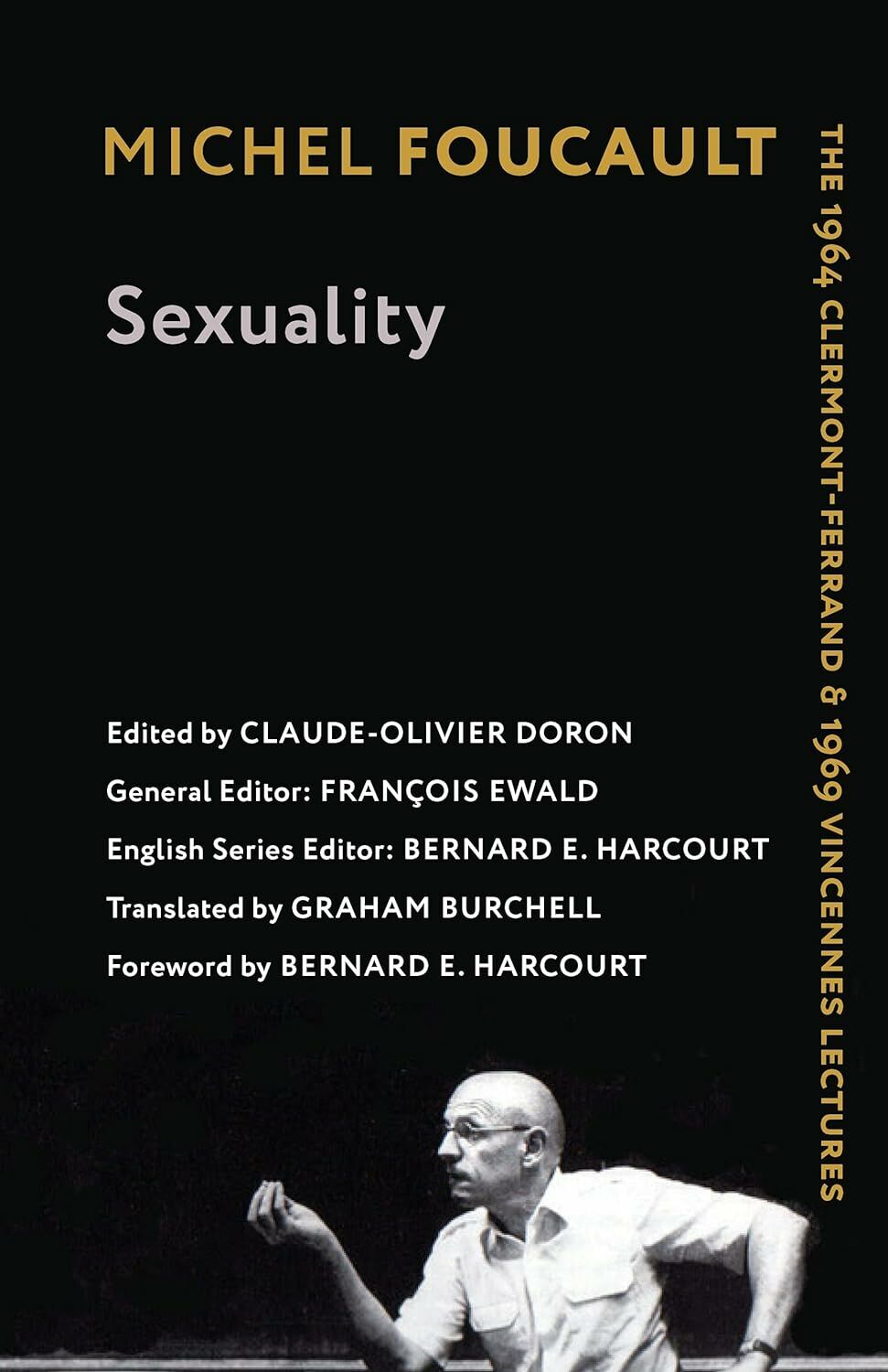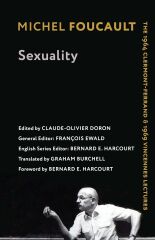Sexuality: The 1964 Clermont-Ferrand and 1969 Vincennes Lectures
1.081,42 TL
Kategori
Yayınevi
Barkod
9780231195072
Yazar
Foucault, Michel
Çevirmen
Burchell, Graham
Yayın Dili
İngilizce
Yayın Yılı
2021
Sayfa Sayısı
440
Kapak Tipi
Karton Kapak
Seri
Foucault's Early Lectures and Manuscripts
Piyasa Fiyatı
28,00 USD
Michel Foucault's The History of Sexuality-the first volume of which was published in 1976-exerts a vast influence across the humanities and social sciences. However, Foucault's interest in the history of sexuality began as early as the 1960s, when he taught two courses on the subject. These lectures offer crucial insight into the development of Foucault's thought yet have remained unpublished until recently.
This book presents Foucault's lectures on sexuality for the first time in English. In the first series, held at the University of Clermont-Ferrand in 1964, Foucault asks how sexuality comes to be constituted as a scientific body of knowledge within Western culture and why it derived from the analysis of "perversions"-morbidity, homosexuality, fetishism. The subsequent course, held at the experimental university at Vincennes in 1969, shows how Foucault's theories were reoriented by the events of May 1968; he refocuses on the regulatory nature of the discourse of sexuality and how it serves economic, social, and political ends. Examining creators of political and literary utopias in the nineteenth and twentieth centuries, from Sade to Fourier to Marcuse, who attempted to integrate "natural" sexualities, including transgressive forms, into social and economic life, Foucault elaborates a double critique of the naturalization and the liberation of sexuality. Together, the lectures span a range of interests, from abnormality to heterotopias to ideology, and they offer an unprecedented glimpse into the evolution of Foucault's transformative thinking on sexuality.
Review: What comes to my mind when traversing these extraordinary lectures is a variant of the famous motto: 'same is another.' Foucault claimed that he was writing texts to depart from himself. And he succeeded. But in doing so he delved deeper and deeper into his own truth. And into ours. -- Etienne Balibar, author of Violence and Civility: On the Limits of Political Philosophy
This volume of Foucault's early lectures on sexuality offers readers a chance to follow the ebbs and flows of theoretical thought as ideas take shape under very specific historical conditions. With a brilliant introduction by Bernard Harcourt guiding the way, the lectures gathered here provide deep insight into the braided structures of power, knowledge and desire that continue to regulate bodies. At the same time, this deep archive provides opportunities for linking to other moments of rebellion, opposition and, even, abolition. -- Jack Halberstam, author of Wild Things: The Disorder of Desire and Trans*: A Quick and Quirky Guide to Gender Variation
Finally published in English, these 1964 and 1969 early lectures of Foucault, given at a time when homosexuality was still considered a clinical pathology and a crime and when the notion of gender was not yet a leverage of political emancipation for feminist and trans movements, allow us to grasp the archeology of contemporary queer and trans critical languages. We discover a young Foucault thinking sexuality anew, using Sade, Bataille, Restif de la Bretonne, or Fourier, and fighting with Freud, Marx, Melanie Klein, Marcuse, or Wilhelm Reich in order to pierce an academic, political, and discursive field dominated by epistemic violence against sexual minorities. A necessary, controversial, and fascinating reading to understand not only Foucault's critical project but also the way in which different discourses on desire, pleasure, and sexuality shape our present. -- Paul B. Preciado, author of Countersexual Manifesto
These lectures offer a really important insight into Foucault's work in the 1960s on the question of sexuality-a topic on which his more famous works come from the 1970s and 1980s. This volume shows how he proposed a study of scientific knowledge about sexuality from biology to psychology, with some explicit engagement with figures who are only discussed obliquely elsewhere. Graham Burchell is the most important translator of Foucault's work into English, and Anglophone readers remain much in his debt. -- Stuart Elden, author of The Early Foucault
This book presents Foucault's lectures on sexuality for the first time in English. In the first series, held at the University of Clermont-Ferrand in 1964, Foucault asks how sexuality comes to be constituted as a scientific body of knowledge within Western culture and why it derived from the analysis of "perversions"-morbidity, homosexuality, fetishism. The subsequent course, held at the experimental university at Vincennes in 1969, shows how Foucault's theories were reoriented by the events of May 1968; he refocuses on the regulatory nature of the discourse of sexuality and how it serves economic, social, and political ends. Examining creators of political and literary utopias in the nineteenth and twentieth centuries, from Sade to Fourier to Marcuse, who attempted to integrate "natural" sexualities, including transgressive forms, into social and economic life, Foucault elaborates a double critique of the naturalization and the liberation of sexuality. Together, the lectures span a range of interests, from abnormality to heterotopias to ideology, and they offer an unprecedented glimpse into the evolution of Foucault's transformative thinking on sexuality.
Review: What comes to my mind when traversing these extraordinary lectures is a variant of the famous motto: 'same is another.' Foucault claimed that he was writing texts to depart from himself. And he succeeded. But in doing so he delved deeper and deeper into his own truth. And into ours. -- Etienne Balibar, author of Violence and Civility: On the Limits of Political Philosophy
This volume of Foucault's early lectures on sexuality offers readers a chance to follow the ebbs and flows of theoretical thought as ideas take shape under very specific historical conditions. With a brilliant introduction by Bernard Harcourt guiding the way, the lectures gathered here provide deep insight into the braided structures of power, knowledge and desire that continue to regulate bodies. At the same time, this deep archive provides opportunities for linking to other moments of rebellion, opposition and, even, abolition. -- Jack Halberstam, author of Wild Things: The Disorder of Desire and Trans*: A Quick and Quirky Guide to Gender Variation
Finally published in English, these 1964 and 1969 early lectures of Foucault, given at a time when homosexuality was still considered a clinical pathology and a crime and when the notion of gender was not yet a leverage of political emancipation for feminist and trans movements, allow us to grasp the archeology of contemporary queer and trans critical languages. We discover a young Foucault thinking sexuality anew, using Sade, Bataille, Restif de la Bretonne, or Fourier, and fighting with Freud, Marx, Melanie Klein, Marcuse, or Wilhelm Reich in order to pierce an academic, political, and discursive field dominated by epistemic violence against sexual minorities. A necessary, controversial, and fascinating reading to understand not only Foucault's critical project but also the way in which different discourses on desire, pleasure, and sexuality shape our present. -- Paul B. Preciado, author of Countersexual Manifesto
These lectures offer a really important insight into Foucault's work in the 1960s on the question of sexuality-a topic on which his more famous works come from the 1970s and 1980s. This volume shows how he proposed a study of scientific knowledge about sexuality from biology to psychology, with some explicit engagement with figures who are only discussed obliquely elsewhere. Graham Burchell is the most important translator of Foucault's work into English, and Anglophone readers remain much in his debt. -- Stuart Elden, author of The Early Foucault
Bu ürüne ilk yorumu siz yapın!


